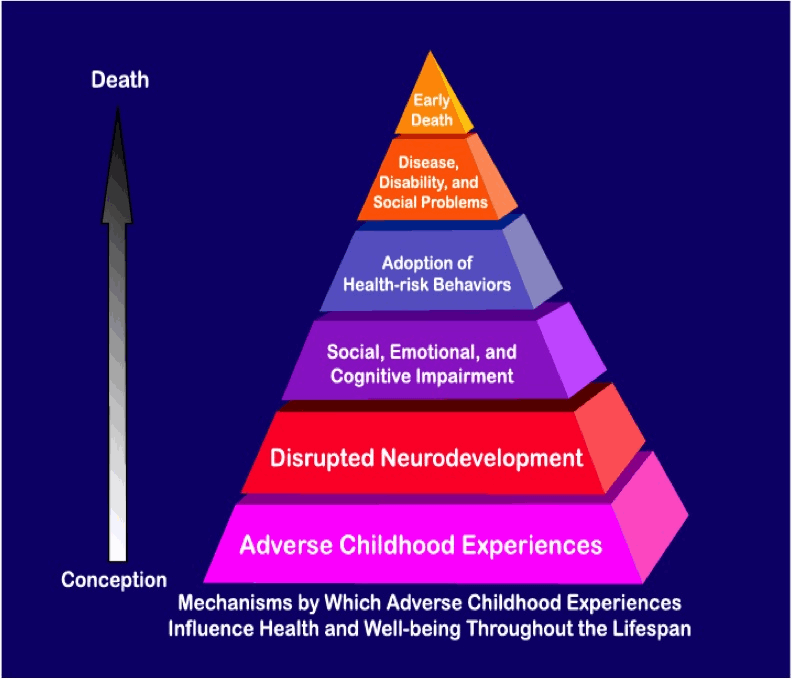Who We Are
ACE Study
What is an ACE?
An Adverse Childhood Experience (ACE) is defined as experiencing any of the following categories of abuse, neglect, or loss prior to age 18:
- Physical abuse by a parent
- Emotional abuse by a parent
- Sexual abuse by anyone
- Growing up with an alcohol and/or drug abuser in the household
- Experiencing the incarceration of a household member
- Living with a family member experiencing mental illness
- Domestic violence
- Loss of a parent
- Emotional neglect
- Physical neglect
The ACE Study
Beginning in 1994, the "adverse childhood experiences" (ACE) Study, a partnership between the Centers for Disease Control (CDC) and Kaiser Permanente assessed the relationship between adult health risk behaviors and childhood abuse and household dysfunction.
- The study began with a sample of 9,508 individuals representing a 70.5% response rate.
- Respondents were given a score of one for each ACE category that they experienced.
Findings showed that people who experienced four or more adverse childhood events had:
- increased risk for smoking, alcoholism and drug abuse
- increased risk for depression and suicide attempts
- poor self-rated health
- 50 or more sexual partners
- greater likelihood of sexually transmitted disease
- challenges with physical inactivity, and severe obesity
A follow-up sample combined with baseline data for a total sample of 17,337. Additional findings show that ACE Score is associated with:
- likelihood of attempted suicide across the lifespan
- increased risk for broken bones
- heart disease
- lung disease
- liver disease
- multiple types of cancer
ACE Score is also correlated with:
- impaired job functioning
- homelessness
- criminal justice involvement
You can visit the CDC's webpage for ACE Study references or view the ACE Questionnaire. In close contact with Drs. Felitti and Anda, we have extended ACE research to more disadvantaged groups, emphasizing ACE implications for comprehensive responses. For further information on ACEs and ACE research, including an overview of the ACE Study, click here to view a recorded webinar (note: PowerPoint slides begin at around the 8-minute mark).


